Sweet Potato Vs Yam: 6 Key Differences To Know
If you thought they were the same, you are in for a surprise!
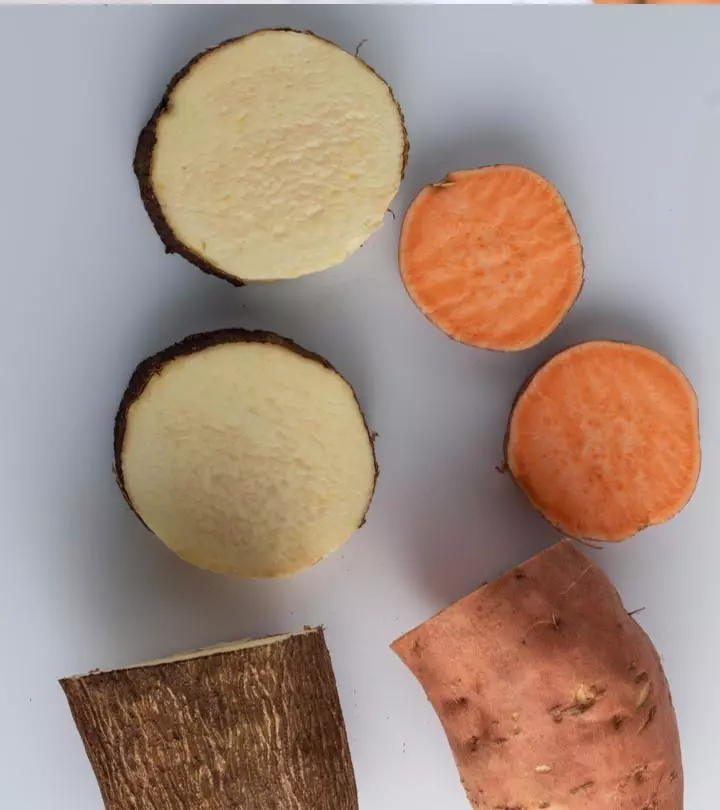
Image: Shutterstock
Sweet potato Vs. yam – what are the key differences? While both share similar nutritional properties and grow underground, they differ in their taste, appearance, and benefits. The common name for sweet potatoes in North America is yams, though it is a different vegetable in Asian and American countries. This article explores the key differences between these two vegetables in detail, their nutrition profile, potential health benefits, possible side effects, and some delicious recipes. Keep reading.
In This Article
What Are Sweet Potatoes?
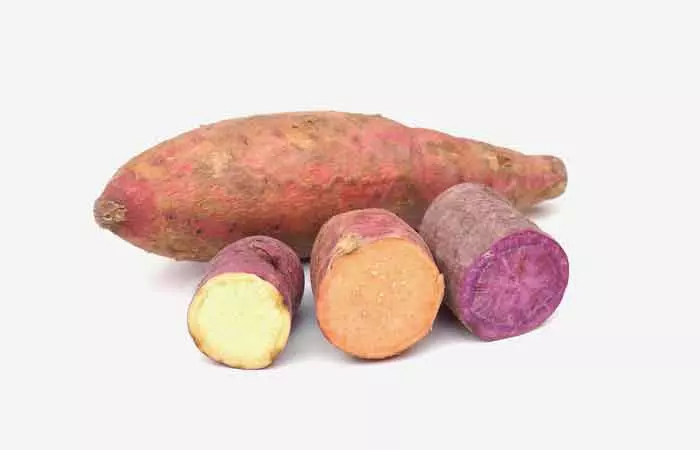
Sweet potato (Ipomoea batatas) usually refers to the plant’s sweet, starchy, tuberous roots. It is native to tropical America and all parts, including roots, leaves, and stems, are nutritious (1).
 Trivia
TriviaIsabel Maples, MEd, RDN, says, “In the US, when we think of sweet potatoes vs. yams – they are both sweet potatoes. Yams are not what most Americans think they are.”
This confusion all began due to a marketing strategy, she said.
The Porto Rico cultivar, a variety of sweet potatoes with light orange-colored flesh, was promoted extensively as yams in the 1960s. The potato growers and shippers did that to distinguish this variety from the conventional dry white-flesh varieties of sweet potatoes. Since sweet potatoes are often called yams in the US, the USDA requires the label on yams to include both the terms “yam” and “sweet potato.” Yams are different starchy root vegetables from the Dioscorea genus. Scroll down to learn in detail.
Key Takeaways
- While sweet potatoes and yams share similar nutritional properties, both differ in their taste and appearance.
- They both are rich in antioxidants, have antimicrobial properties, and may improve menopausal symptoms.
- However, the high oxalate content in sweet potatoes and yams may cause kidney stones if eaten in excess quantities.

What Are Yams?
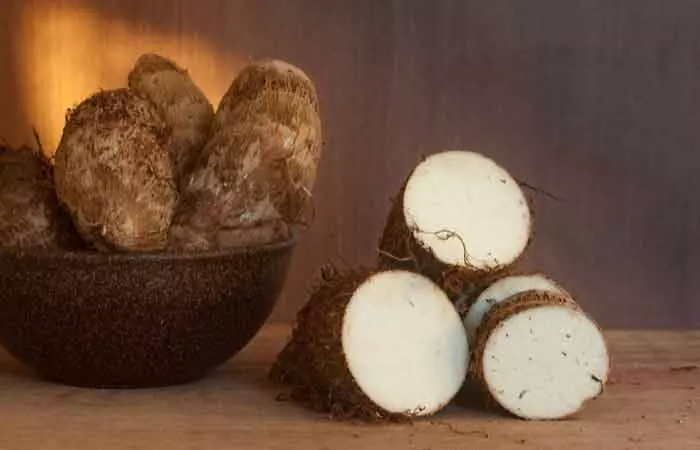
Maples says, “True yams are starchy root vegetables with a tough skin and white flesh. They are very difficult to peel.” Yams are native to Africa and were called nyami. They are also found in parts of Asia, Latin America, the Caribbean, and Oceania. Yam is exported from Africa to the US (and other countries).
 Did You Know?
Did You Know?The plant is used in many cuisines for its starch content (2), (3). The next sections compare the nutritional and other aspects of yams and sweet potatoes.
Sweet Potato Vs. Yam: Key Comparisons
Key Differences | Yams | Sweet Potatoes |
Scientific Classification | Belong to Dioscoreaceae or yam family (1) | Belong to Convolvulaceae or morning glory family and are true roots (1) |
Edible Part | The tuber (thickened part of the stem) | The roots |
Taste | Neutral flavor | Sweet |
| External Appearance | Rough and textured brown skin, are long and cylindrical with some toes | Thin reddish-brown skin, are short, blocky, and have tapered ends |
Color | Pale white flesh | May have orange or purple flesh (depending on the variety) |
| Culinary Uses | Can be baked, boiled, fried, and used in savory dishes, soups, stews, or as a starchy side across African, Asian, Latin American, and Caribbean cuisines. | Can be baked, boiled, fried, and used in desserts, casseroles, pies, and mashed dishes in American, Southeast Asian, and African cuisines. |
Sweet Potato Vs. Yam: Nutritional Profiles
A hundred grams of sweet potato and yam contains (4), (5):
Nutrient | Sweet Potato | Yam |
Calories | 91 kcal | 118 kcal |
Proteins | 1.65 g | 1.53 g |
Carbohydrates | 21.1 g | 27.9 g |
Total lipids (Fat) | 0.2 g | 0.17 g |
Dietary fiber | 1.8 g | 4.1 g |
Sodium | 53 mg | 9 mg |
Potassium | 312 mg | 816 mg |
Phosphorus | 49 mg | 55 mg |
Magnesium | 22 mg | 21 mg |
Calcium | 22 mg | 17 mg |
Vitamin C | 26.4 mg | 17.1 mg |
Both seem to be similar in nutrition. However, experts explain the differences between them.
Anthony Puopolo, MD, Chief Medical Officer at RexMD, remarks, “In general, sweet potatoes tend to be lower in calories than yams, containing slightly more water and slightly more protein than yams. Yams, however, are higher in manganese and potassium, making them better options for those with anemia or iron deficiencies.”
Dr. Sandra El Hajj, a naturopathic medical doctor and Food Science expert, explains, “Sweet potatoes are very rich in vitamin A and provide your body with more than its daily needs, while yams barely have 1% of your daily needs of this vitamin.”
She adds, “However, yams contain higher amounts of potassium and manganese and are very low in sugar, which makes them better protection for your heart, growth, and metabolism as well as great options for you if you are diabetic. They have a low glycemic index compared to sweet potatoes, which do not cause blood sugar spikes.”
Depending on their nutrient content, yams and sweet potatoes contribute to your overall health in many ways. Let’s understand in detail.
Potential Health Benefits Of Sweet Potato And Yam
1. Rich In Antioxidants
The purple and orange colors of the sweet potatoes are due to beta-carotene, an antioxidant. The human body converts it into vitamin A, which is crucial for maintaining the body functions, vision, and healthy organs (1).
Several varieties of wild yams contain phenols, flavonoids, and other antioxidants. They can prevent damage caused by harmful free radicals and help prevent health conditions and inflammation (6).
2. May Have Antimicrobial Effects
Studies have found that purple and yellow sweet potatoes are active against gram-positive bacteria like Streptococcus faecalis (found in the human intestine). Wild yams are effective against both gram-positive and negative bacteria, especially Staphylococcus aureus and Streptococcus mutans. They also have antifungal effects against pathogenic fungi (7), (8).
3. May Improve Menopausal Symptoms
Yams are traditionally used for improving postmenopausal symptoms. A study on postmenopausal women found that consuming yam improved the status of antioxidants, sex hormones, and lipids. Researchers concluded that all these effects might also reduce the risk of breast cancer and cardiovascular conditions in postmenopausal women (9).
There are many sweet potato and yam benefits for our health and you can also consume them in various ways. Here are a few recipes you may try.
Recipes To Try With Sweet Potatoes And Yams
Sweet Potato Recipes
1. Spicy Baked Sweet PotatoWhat You Need
- 2 large sweet potatoes
- 1 ½ teaspoons of paprika
- 1 teaspoon of brown sugar
- ¼ teaspoon of black pepper
- ¼ teaspoon of onion powder
- ¼ teaspoon of dried thyme
- ¼ teaspoon of dried rosemary
- ¼ teaspoon of garlic powder
- ⅛ teaspoon of cayenne pepper
- 1 ½ teaspoons of olive oil
How To Prepare
- Preheat the oven to 375°F.
- Mix all the spices and brown sugar in a small bowl.
- Halve the sweet potatoes lengthwise and drizzle olive oil on each slice.
- Sprinkle the seasoning mix over each half. Put them on a baking sheet.
- Bake for an hour.
2. Sweet Potato PieWhat You Need
- 1 unbaked pie crust
- 2 cups of sweet potatoes (cooked and mashed)
- 2 tablespoons of butter (softened)
- 2 eggs (beaten)
- 1 cup of white sugar
- 1 tablespoon of all-purpose flour
- ½ cup of buttermilk
- ¼ teaspoon of baking soda
- 1 teaspoon of vanilla extract
- ½ teaspoon of salt
How To Prepare
- Preheat the oven to 370°F.
- Mix sweet potatoes, butter, and eggs.
- Mix sugar, flour, and salt in a separate bowl. Season with spices if desired. Mix it with the mashed potatoes.
- Combine buttermilk, baking soda, vanilla extract, and the sweet potato mixture.
- Pour the filling into the pie crust.
- Bake for an hour until the center is set.
Yam Recipes
1. Yam BallsWhat You Need
- 1 yam tuber (peeled and cubed)
- 1 can of sardine (drained)
- 2 tablespoons of hot sauce
- 3 tablespoons of spring onions (chopped)
- 2 teaspoons of chili flakes
- 1 teaspoon of garlic powder
- 1 teaspoon of fresh parsley
- 2 medium eggs
- 2 cups of dried breadcrumbs
- 3 tablespoons of butter (softened)
- 2 cups of vegetable oil
- Salt, as needed
How To Prepare
- Boil the yam pieces until soft and tender.
- Drain the water, add butter, and mash until smooth.
- Add parsley, chopped spring onions, hot sauce, chili flakes, and garlic powder to the mashed yam. Add sardine and mix well.
- Separate the egg yolks from the whites and mix with the mashed yam.
- Whip the reserved egg whites until smooth.
- Heat vegetable oil in a shallow pan on medium-high heat.
- Shape mashed yam into balls, dip into the egg whites and coat with bread crumbs.
- Fry the yam balls until golden brown. Remove and drain on a kitchen towel.
- Serve immediately or let it cool.
2. Yam PorridgeWhat You Need
- ½ of the yam tuber
- 1 red bell pepper
- 2 red chilies
- 1 onion (chopped)
- ½ cup of vegetable oil
- 1 tablespoon of beef seasoning powder
- 1 medium-sized mackerel fish (cleaned)
- 2 handfuls of spinach
- Salt, as needed
How To Prepare
- Peel and chop the yam. Rinse and soak the pieces in cold water for 30 minutes.
- Chop and blend the red bell pepper, red chili, and onions with water and set aside.
- Season the fish with salt and beef seasoning. Boil it for about 5 minutes; debone and flake the fish.
- Cook the yam chunks in the pepper mixture over medium heat. Add salt, beef seasoning, and water. Cover and cook until tender.
- Gently mash the yam chunks with the back of a wooden spatula.
- Fry onions in another pan until translucent. Add them to the yam mixture.
- After 1-2 minutes, stir in the flaked fish and combine with the yam.
- Add chopped spinach and cook for another two minutes. Once done, turn off the heat and serve.
3. Candied Yams
What You Need
- 2 large yams
- ½ cup of brown sugar
- ¼ cup of unsalted butter
- 1 teaspoon of cinnamon
- ½ teaspoon of nutmeg
- ¼ teaspoon of salt
- 1 teaspoon of vanilla extract
- Marshmallows (optional)
How To Prepare
- Peel and slice the yams into rounds or cubes.
- Melt butter in a saucepan and add brown sugar, cinnamon, nutmeg, salt, and vanilla extract.
- Stir until the mixture is smooth and well combined.
- Add yam slices to the saucepan and coat them evenly with the mixture.
- Cook over medium heat until the yams are tender. Stir occasionally.
- If desired, top with marshmallows and broil until golden brown.
- Serve the candied yams warm, and enjoy this sweet and comforting dish!
A blogger cooked Kootu curry, a dish from Kerala, made with yam, red pumpkin, and black chickpeas. She said, “I learnt how to make Kootu Curry from a family acquaintance of ours, who is into Palakkad-style catering. Both the husband and I love this curry to bits, and it is often a part of our lunches (i).”
You can consume both yams and sweet potatoes. However, if you have to choose between them, here’s what experts have to say.
Sweet Potatoes Vs. Yams: Which One To Include In Your Diet?
, MS, RD, LD, comments, “Both yams and sweet potatoes can be incorporated into your diet. But if you’re looking to only add one, sweet potatoes are probably the best bet. Not only are they marginally more nutritious, they have a sweeter taste which most people would prefer and are more widely available in the US.”
Sweet potatoes have the edge over yams. Although both are safe, you may want to follow certain precautions due to their oxalate levels.
Possible Side Effects Of Sweet Potatoes And Yams
, RD, CSOWM, LDN, advises, “Calcium oxalate stones are the most common type of kidney stones. Oxalates are present in almost all plant-based foods, so they are nearly impossible to avoid. However, some foods are higher in oxalates than others.”
She notes, “Sweet potatoes contain about 14 mg of oxalate per half cup, and yams contain about 40 mg of oxalate per half-cup. Therefore, sweet potatoes would be considered the better option for those with calcium-oxalate kidney stones.”
If you compare the nutritional content of sweet potatoes and yams, you notice that the former has a slightly better profile than the latter. They are good starch sources and can be included in many savory dishes. Sweet potatoes are commonly referred to as yams in the US. True yams are prevalent in Africa and Asia. Sweet potatoes contain provitamin A, so they are good for your eyes, whereas yams improve symptoms of menopause. Both tubers are packed with antioxidants that benefit your health in many ways. However, when consumed in excess, both can cause problems. You should limit their use and consult a doctor if any adverse reactions occur.
Frequently Asked Questions
Why are yams called sweet potatoes?
People refer to sweet potatoes as yams because they resemble yams.
Which is better for weight loss, sweet potato or yam?
Consuming sweet potatoes for weight loss is a better option, as they have slightly fewer calories when compared to yams.
Why do Canadians call sweet potatoes yams?
Canadians call sweet potatoes yams because of their similarity to the true yams that they know from other parts of the world.
To end the confusion between yams and sweet potatoes watch this video! Delve into the distinct differences, and the history of these often mistaken tubers.
Personal Experience: Source
(i). Kootu Curry| Onam Special Yam & Pumpkin Curry
https://thephotowali.wordpress.com/2025/08/02/kootu-curry-onam-special-yam-pumpkin-curry/
References
Articles on StyleCraze are backed by verified information from peer-reviewed and academic research papers, reputed organizations, research institutions, and medical associations to ensure accuracy and relevance. Read our editorial policy to learn more.
- Sweet Potato: A Review of its Past Present and Future Role in Human Nutrition
https://www.sciencedirect.com/science/article/abs/pii/S1043452606520017 - Yams
https://www.ncbi.nlm.nih.gov/pmc/articles/PMC6418417/ - The Dioscorea Genus (Yam)—An Appraisal of Nutritional and Therapeutic Potentials
https://www.mdpi.com/2304-8158/9/9/1304 - Sweet potato canned vacuum pack FoodData Central
https://fdc.nal.usda.gov/fdc-app.html#/food-details/168485/nutrients - Yam raw FoodData Central
https://fdc.nal.usda.gov/fdc-app.html#/food-details/170071/nutrients - Natural antioxidant potential of selected underutilized wild yams (Dioscorea spp.) for health benefit
https://link.springer.com/article/10.1007/s13197-020-04470-x - Characteristics of Antioxidative and Antimicrobial Activities of Various Cultivars of Sweet Potato
https://www.koreascience.or.kr/article/JAKO199903042097787.page - Potential of Neglected and Underutilized Yams (Dioscorea spp.) for Improving Nutritional Security and Health Benefits
https://www.frontiersin.org/journals/pharmacology/articles/10.3389/fphar.2025.00496/full - Estrogenic effect of yam ingestion in healthy postmenopausal women
https://pubmed.ncbi.nlm.nih.gov/16093400/
Read full bio of Avantii Deshpaande
Read full bio of Payal Karnik
Read full bio of Ravi Teja Tadimalla
Read full bio of Sindhu Koganti






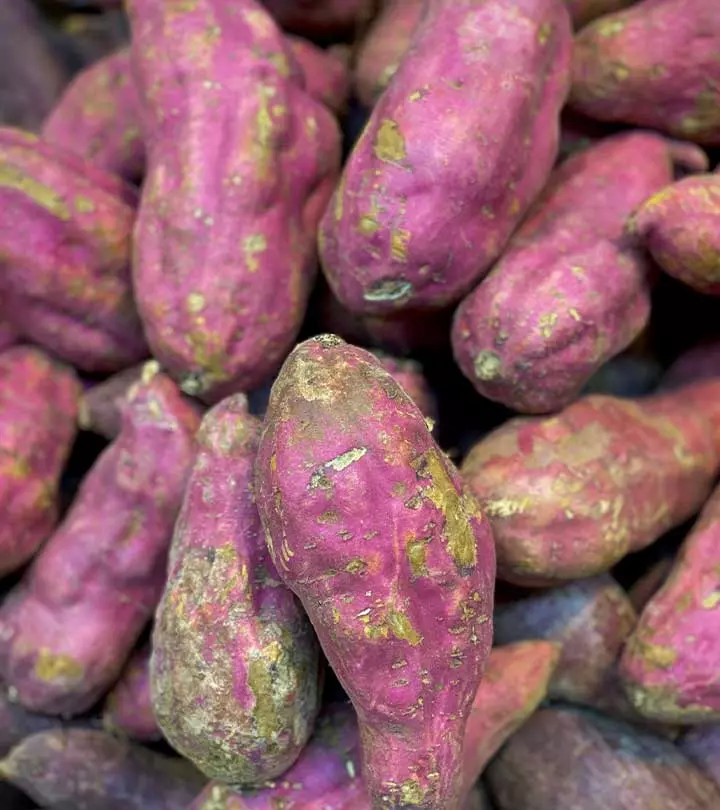
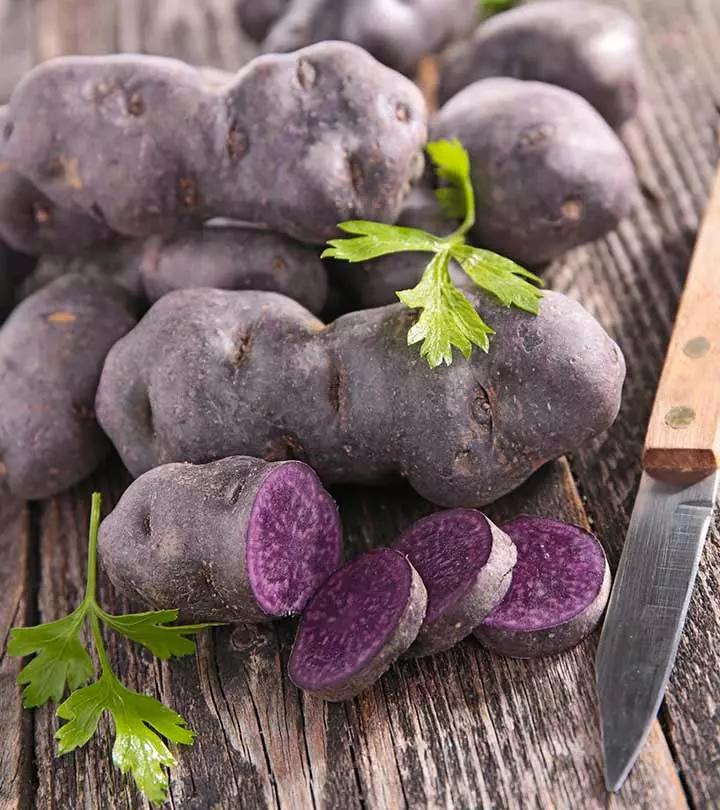
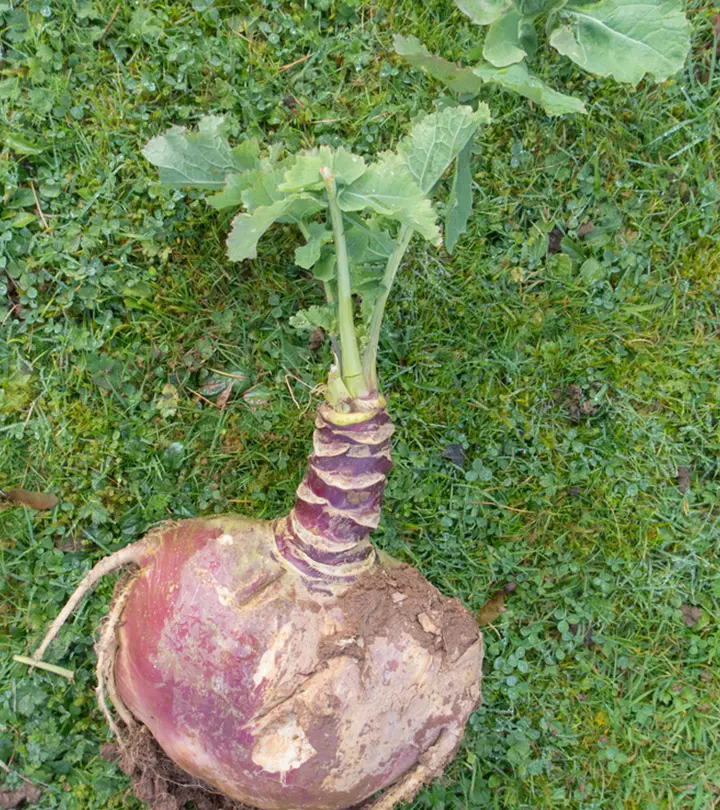
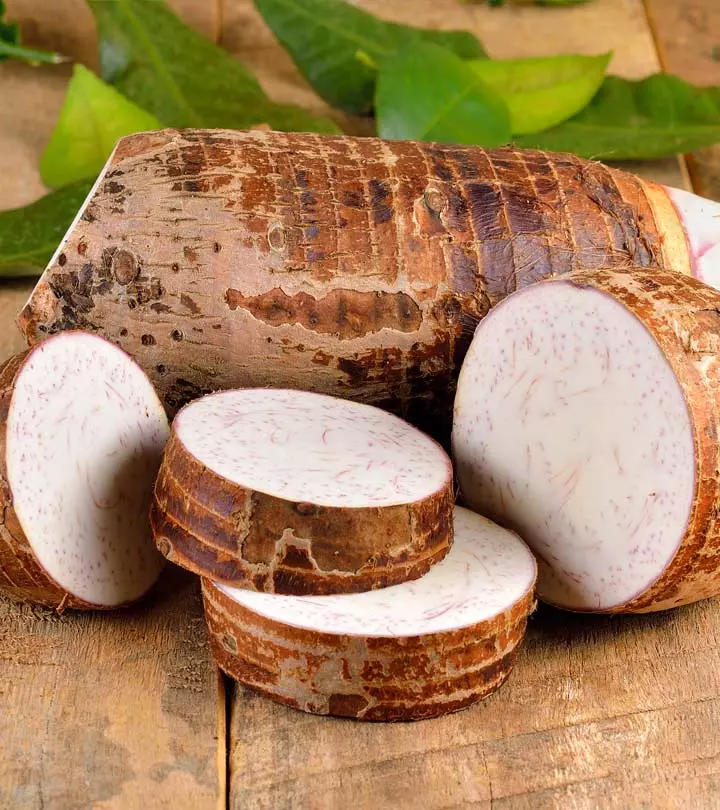
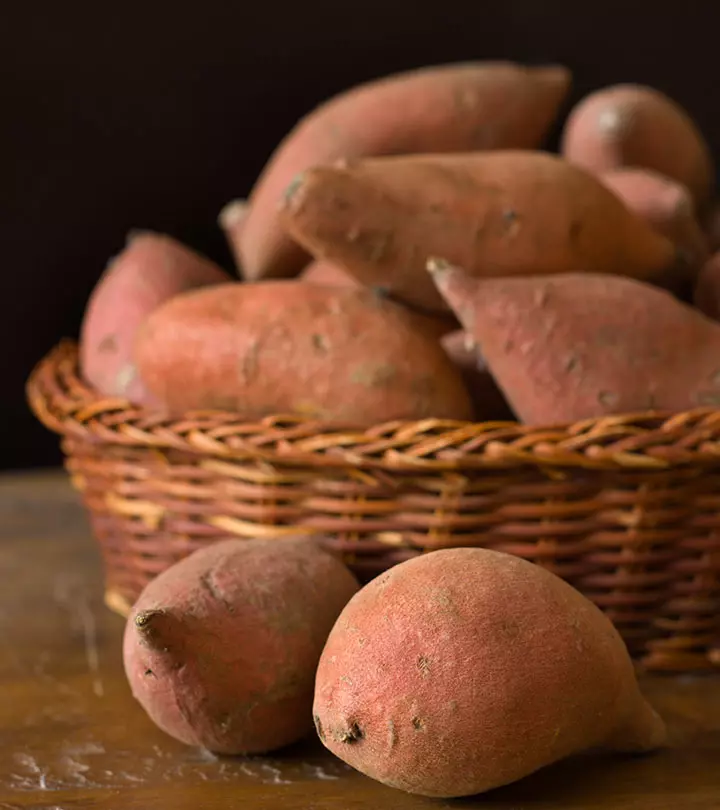
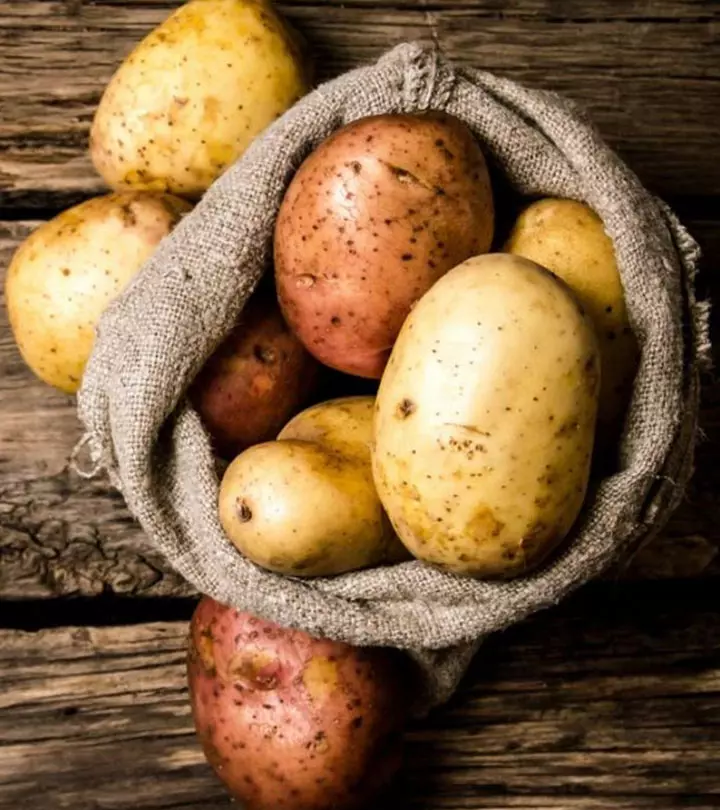
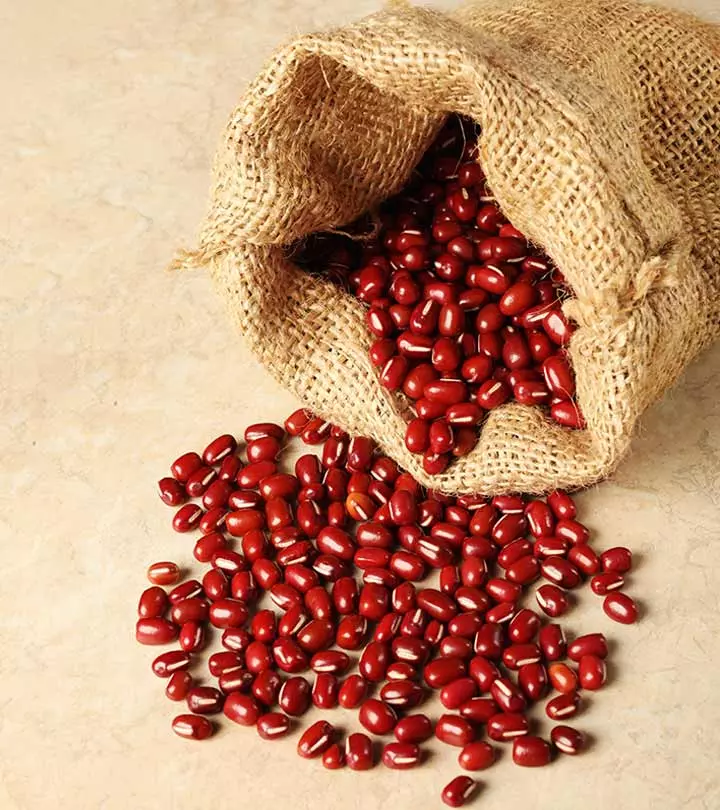
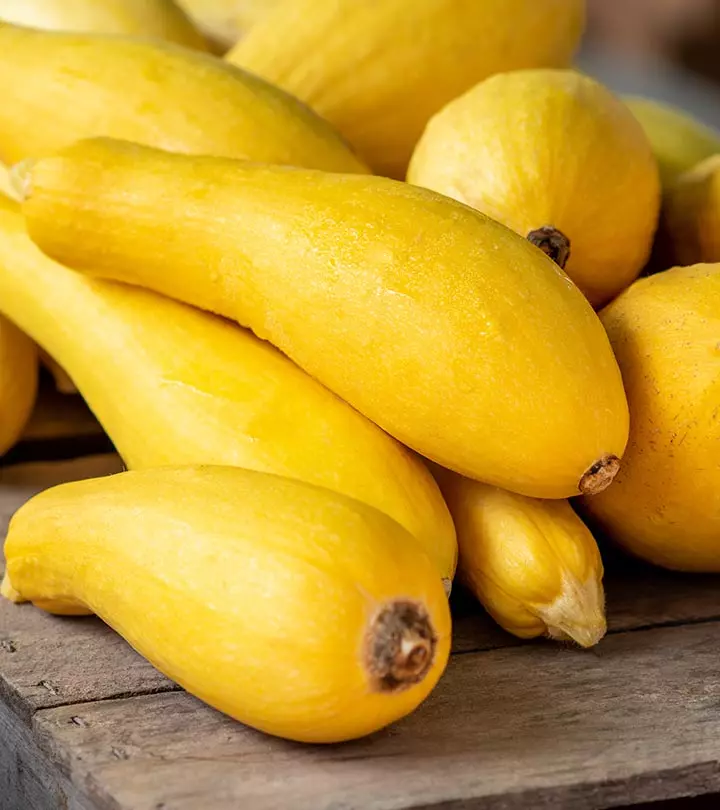
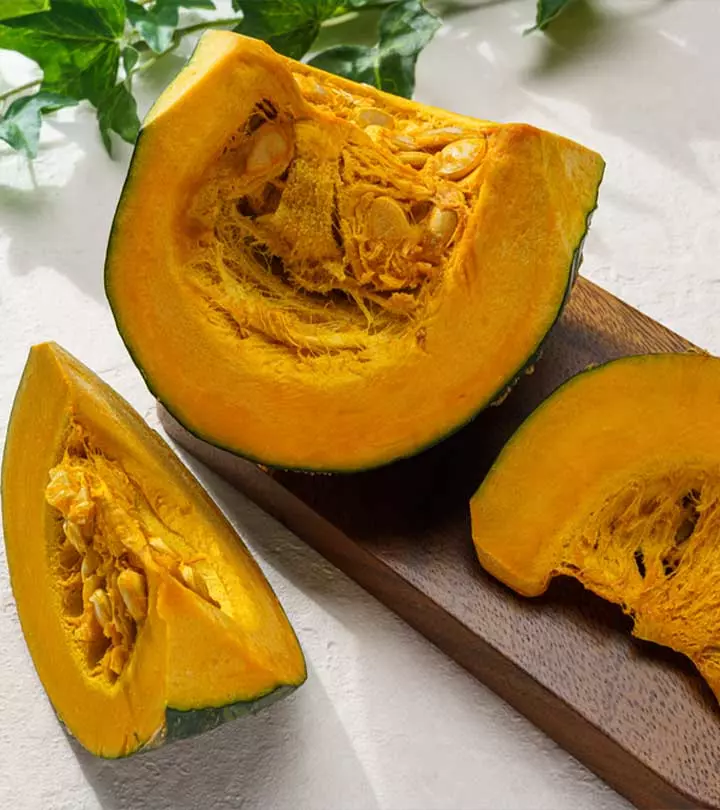
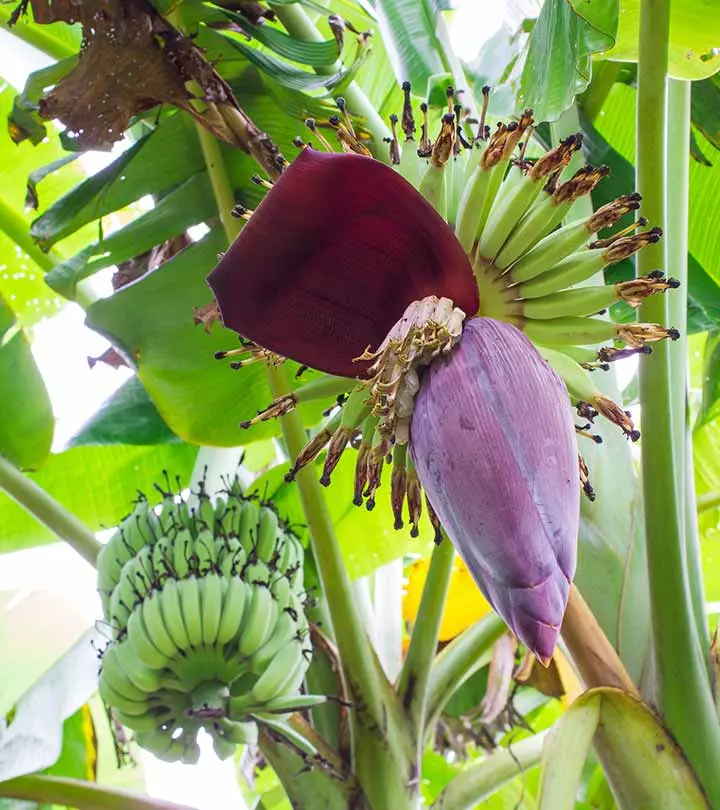
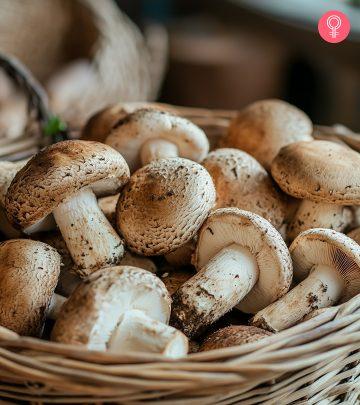
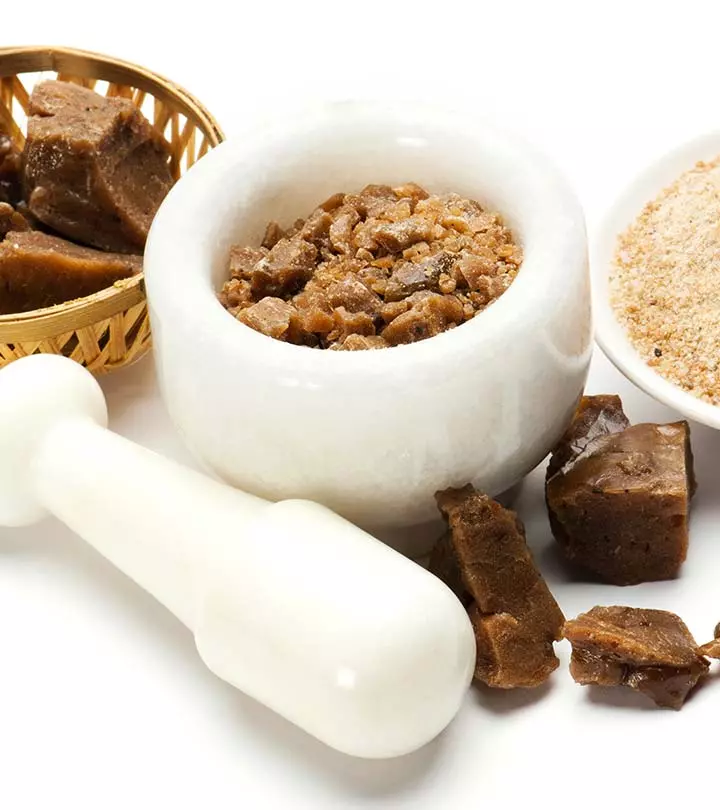
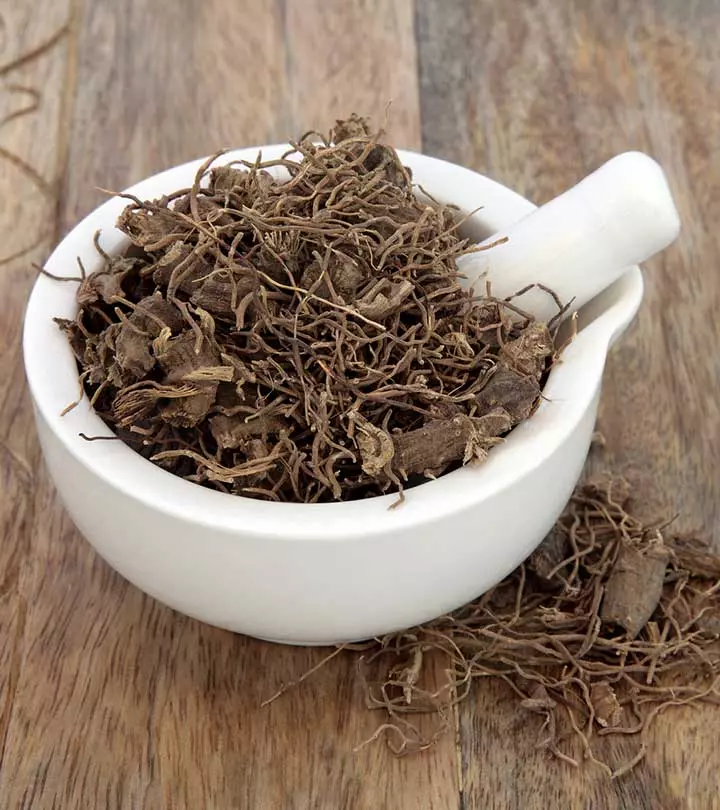

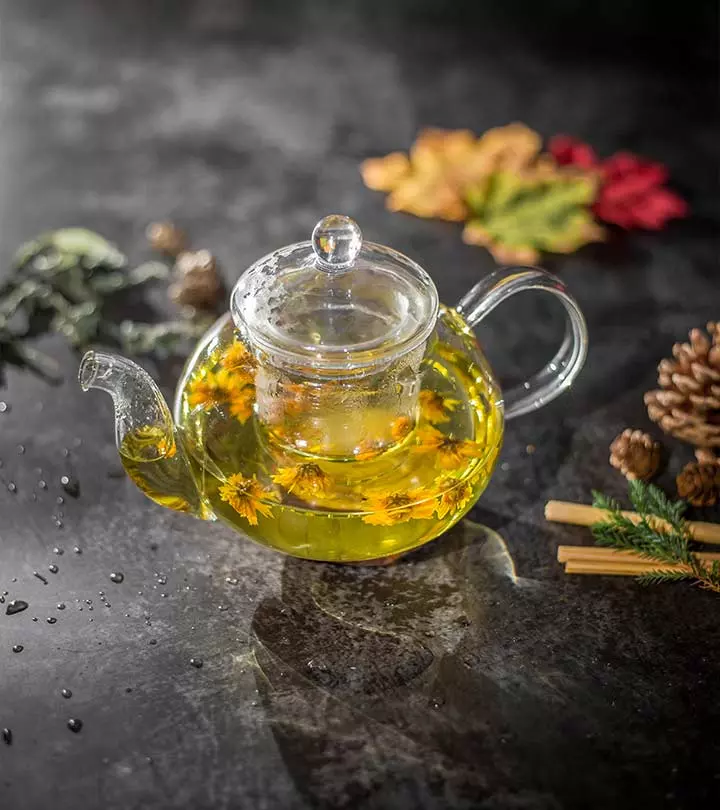
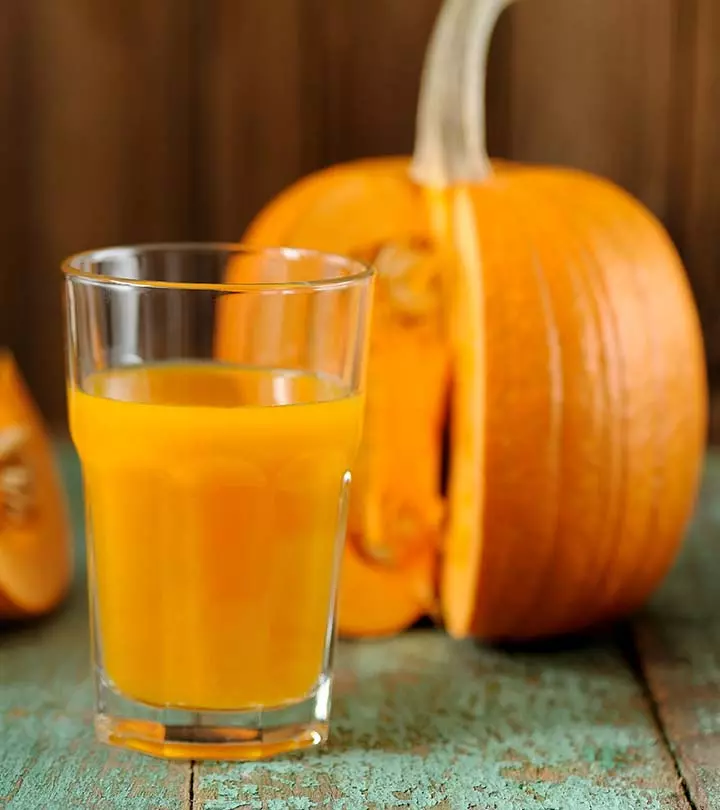
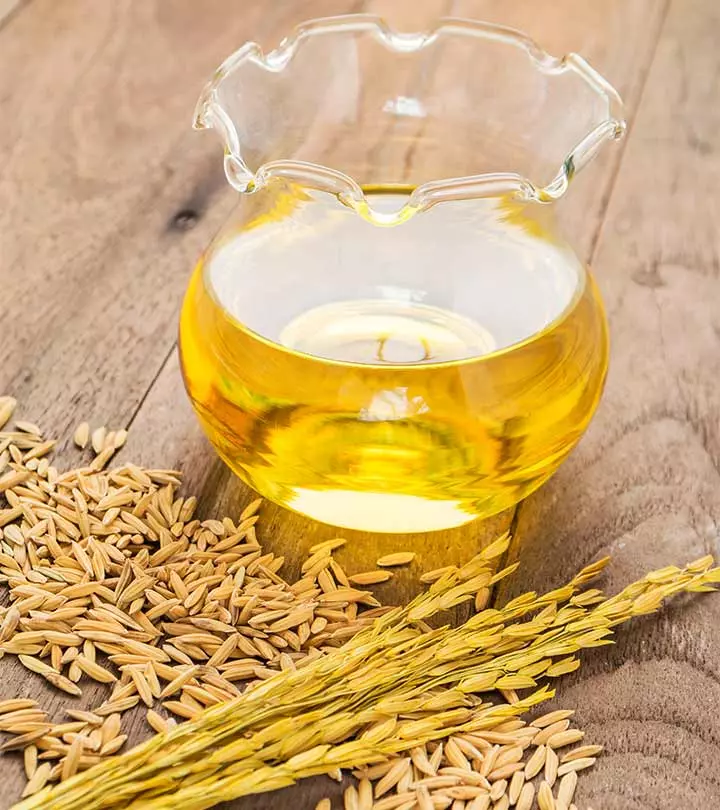
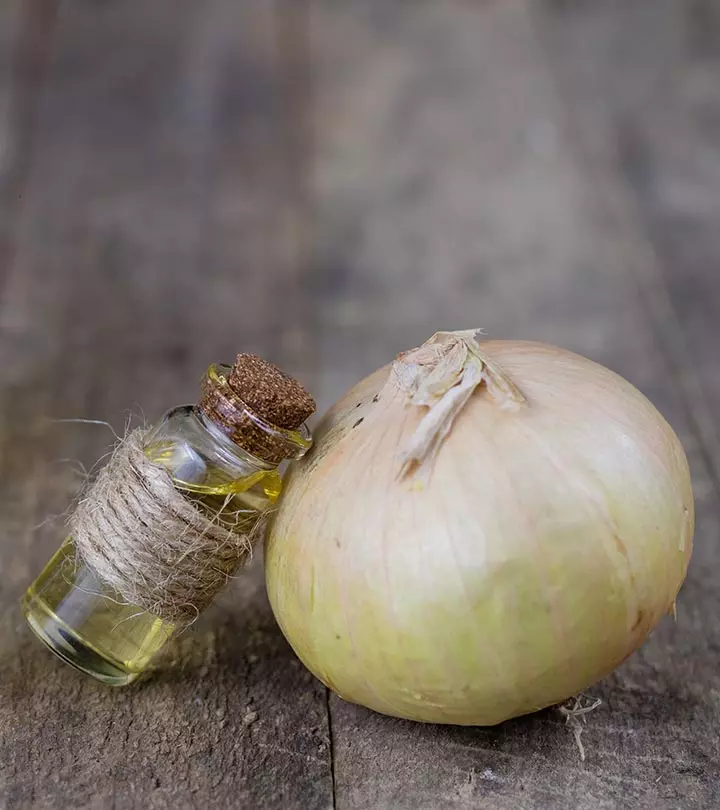
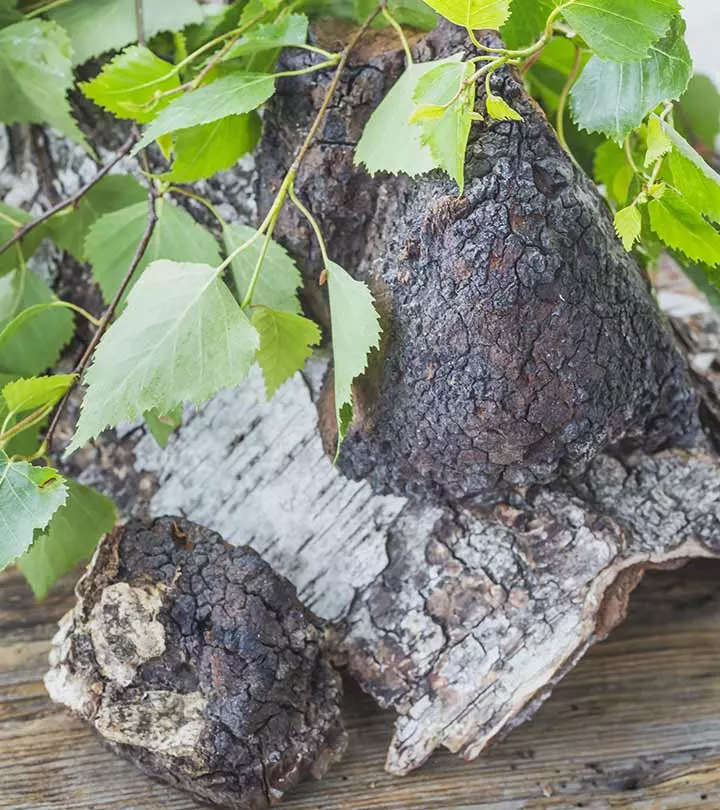
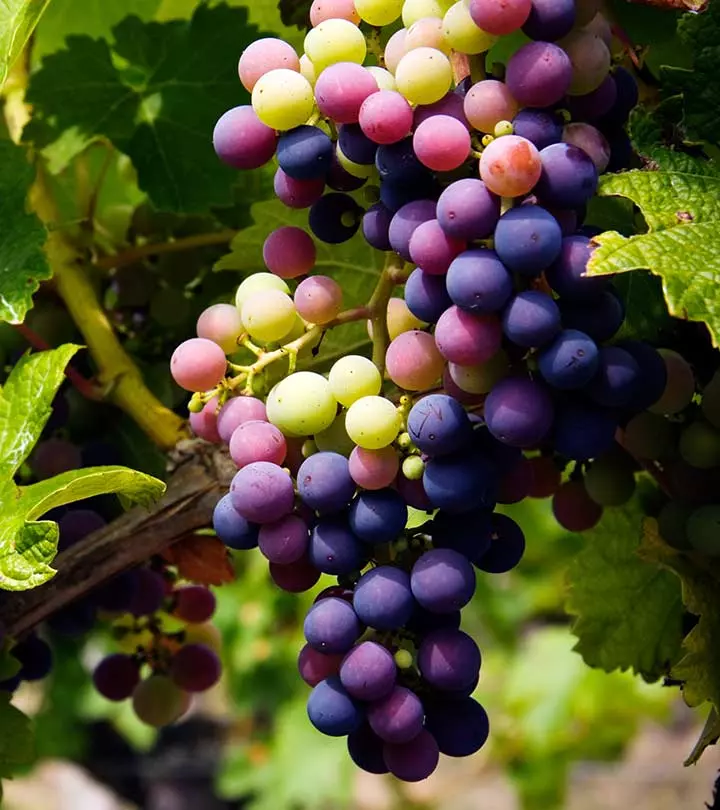
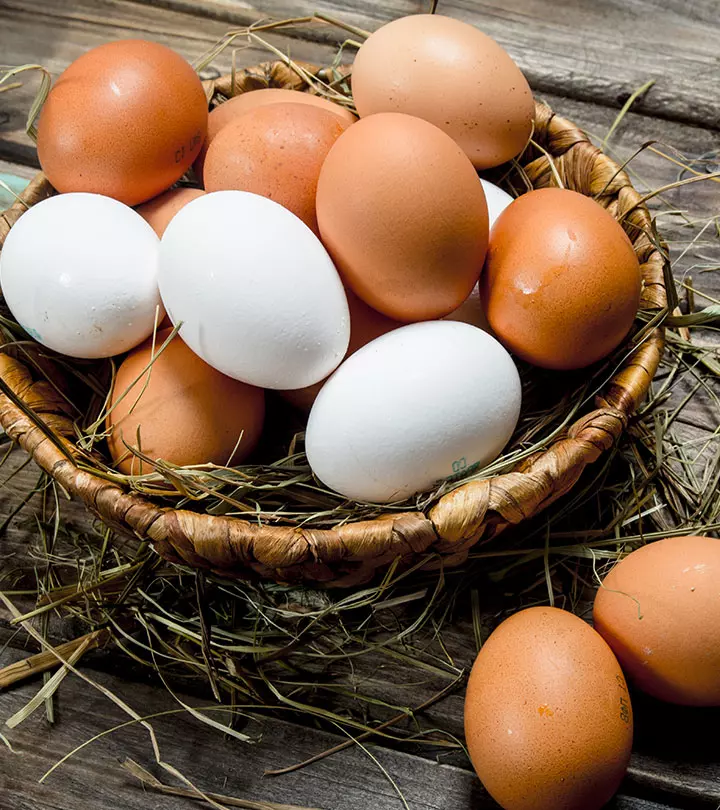
Community Experiences
Join the conversation and become a part of our empowering community! Share your stories, experiences, and insights to connect with other beauty, lifestyle, and health enthusiasts.